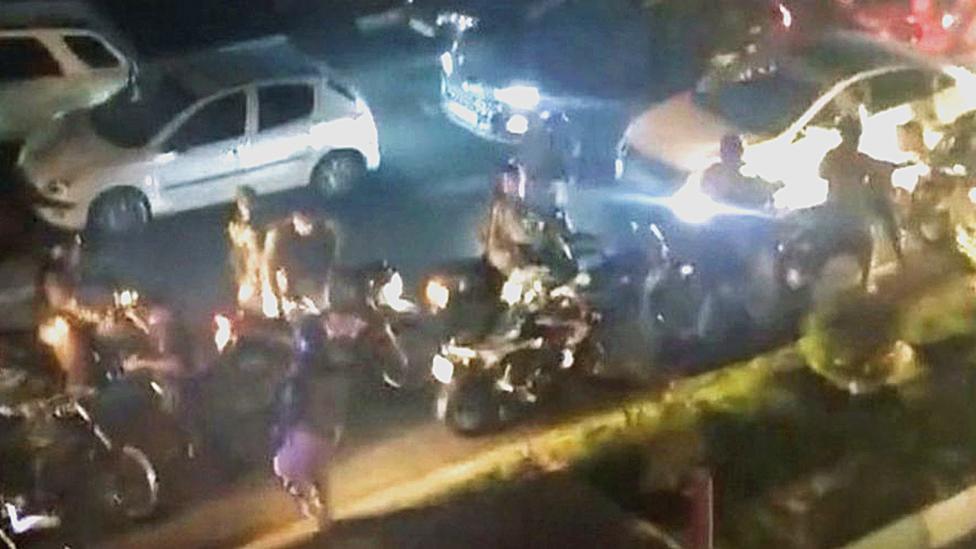Iran protests: UK sanctions morality police over violent crackdown
- Published
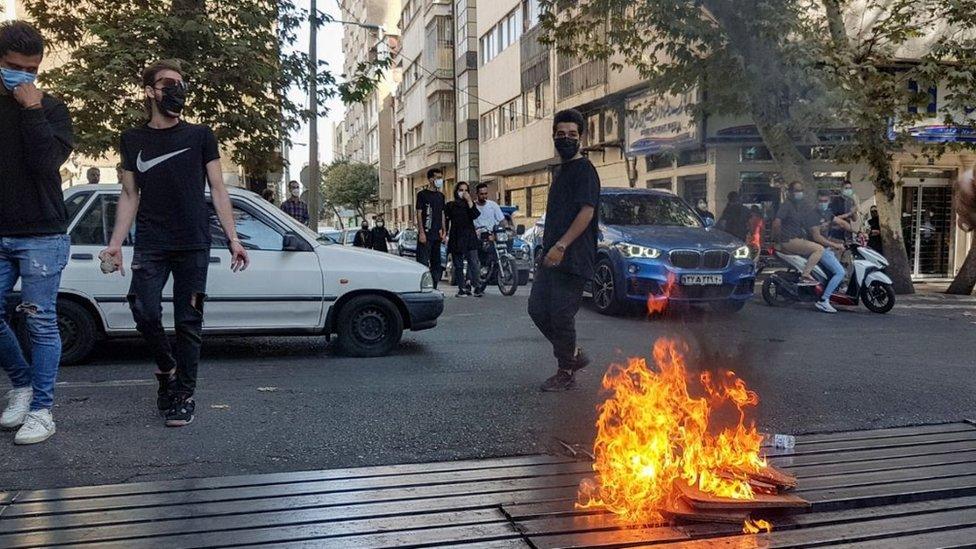
Protesters have been clashing with police in Tehran
The UK has imposed sanctions on Iran's morality police and other top security figures, in response to the country's violent crackdown on protesters.
Protests erupted three weeks ago over the death of 22-year-old Mahsa Amini, who was arrested for allegedly breaking the country's strict dress code.
The Foreign Office has now sanctioned, external the entire morality police force - as well as other key public figures.
They are banned from coming to the UK and any assets held here frozen.
Hundreds of people have died in the protests in recent weeks as the country's security forces clamp down on the unrest. There have been reports of mass arrests, an internet shutdown, the organisation of pro-government rallies and eliciting "forced confessions" from some detainees.
The Foreign Office pointed to reports of live ammunition being used against some of the demonstrators - and said some bodies of protesters killed by security services have also been buried without their families' knowledge.
Videos on social media over the weekend also appeared to show Iran's security services entering schools and universities - after scores of schoolgirls and students joined the demonstrations.


These sanctions might have a direct impact on a few of the senior figures named. There might be some with children being educated in the West or with private business interests overseas valued in sterling.
But most are unlikely to have any assets to be frozen in the UK or any plans to travel to Britain.
Western diplomats are realistic about this. They do not expect decisions in Iran will necessarily change as a result. The aim of these sanctions is simply to show the Iranian authorities the world is watching.
The United States and Canada have already imposed similar sanctions, the European Union is about to follow suit.
The international community is registering its disapproval. It is warning the Iranian authorities they will be held accountable for the violence being meted out by their security forces against the protestors.

Many of the anti-government protesters are angry at the so-called morality police - the Gasht-e Ershad (Guidance Patrols) - who enforce the strict dress rules on women including compulsory headscarves.
Ms Amini allegedly had some hair visible under her headscarf when she was arrested by morality police in Tehran on 13 September. She fell into a coma shortly after collapsing at a detention centre and died three days later in hospital. The force denied reports that officers beat her head with a baton and banged it against one of their vehicles.
As well as the morality police, the UK also sanctioned two of its commanders - its chief, Mohammed Rostami Cheshmeh Gachi, and the head of the Tehran division, Haj Ahmed Mirzaei.
And it imposed sanctions on five leading political and security officials accused of human rights abuses, including Gholamreza Soleimani, the head of the Islamic Revolutionary Guard Corps' Basij force, responsible for internal security in Iran.
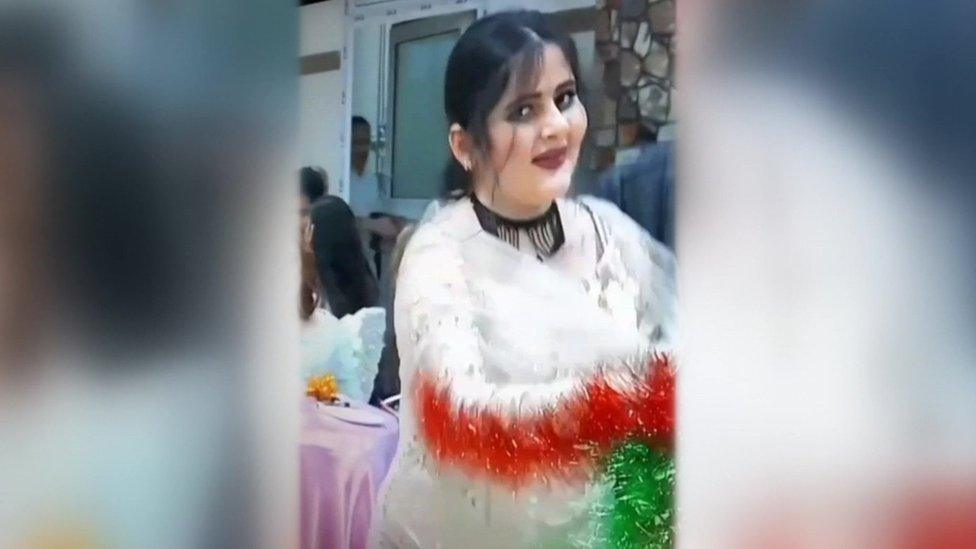
Mahsa Amini's family shared a video showing her dancing at a wedding and waving a colourful shawl
Foreign Secretary James Cleverly said the measures showed the Iranian authorities would be held to account for their repression of women and girls and what he called the shocking violence inflicted on their own people.
"The UK stands with the people of Iran who are bravely calling for accountability from their government and for their fundamental human rights to be respected," he said.
The UK's move follows the lead of the US,, external who also sanctioned Iran's morality police last month.
The EU is also expected to decide on any sanctions next week, and at the weekend Germany said it would push the bloc to freeze assets and impose entry bans.
Last week, the UK summoned Iran's top diplomat to the Foreign Office - a move that was seen as significant and was designed to send a clear signal to Tehran that the world is watching.
You might also be interested in:
The BBC has mapped how the death of Mahsa Amini sparked widespread unrest in Iran
- Published9 October 2022
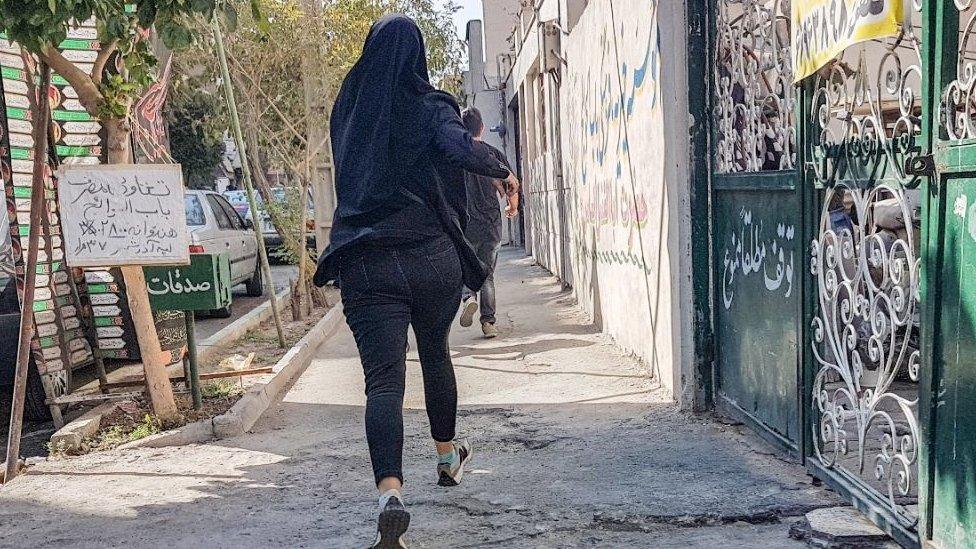
- Published21 September 2022
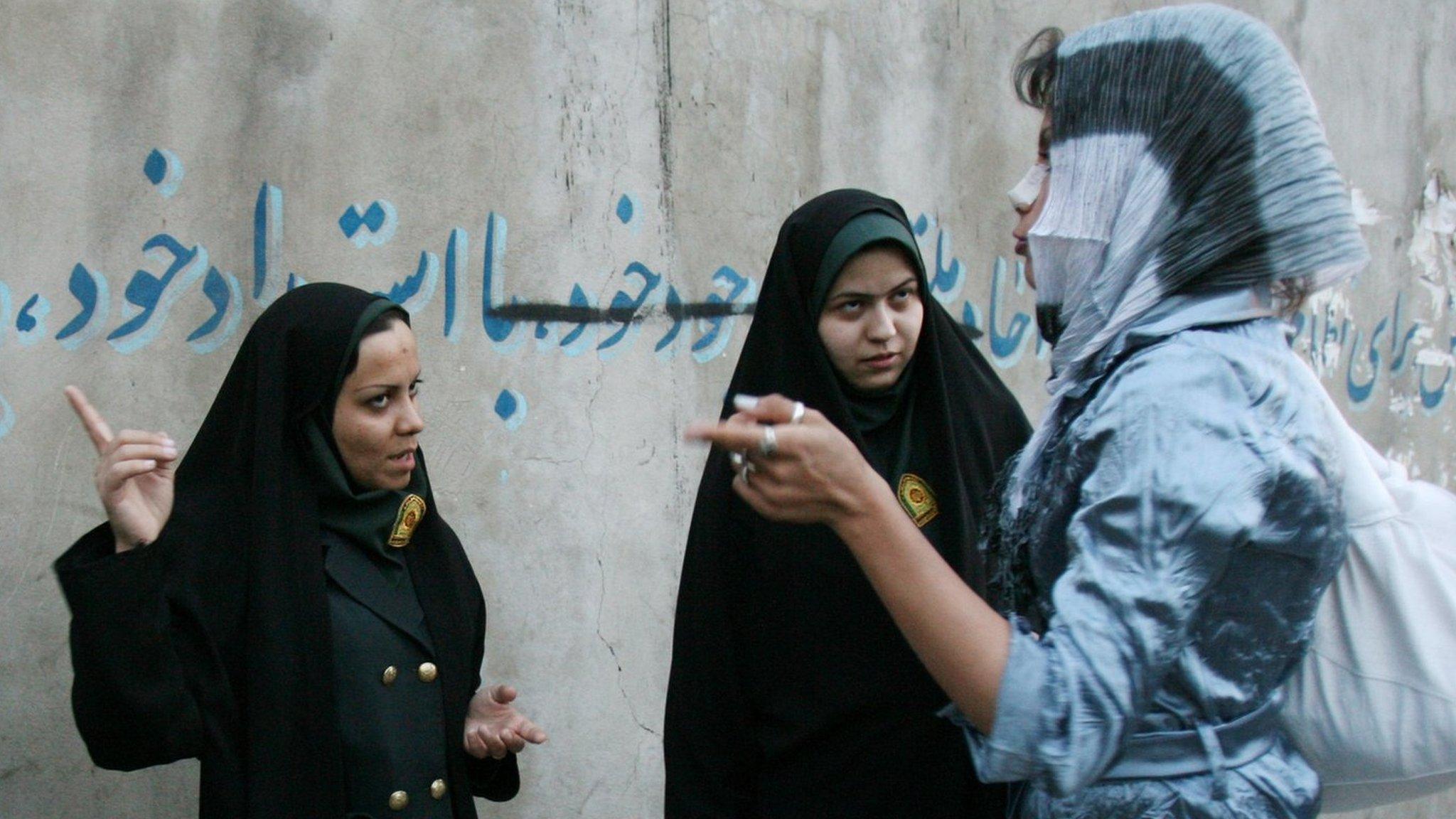
- Published10 October 2022
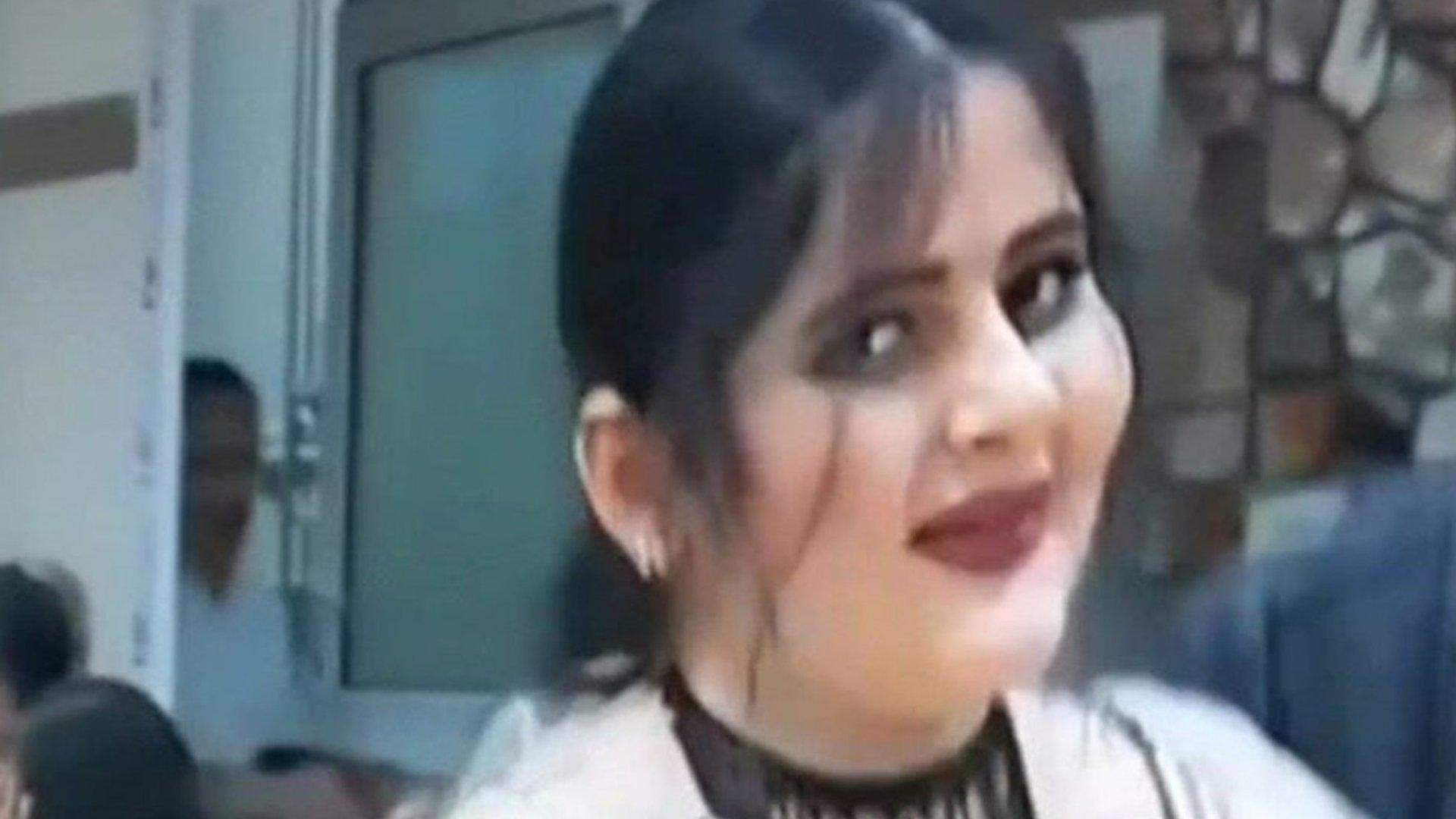
- Published9 October 2022
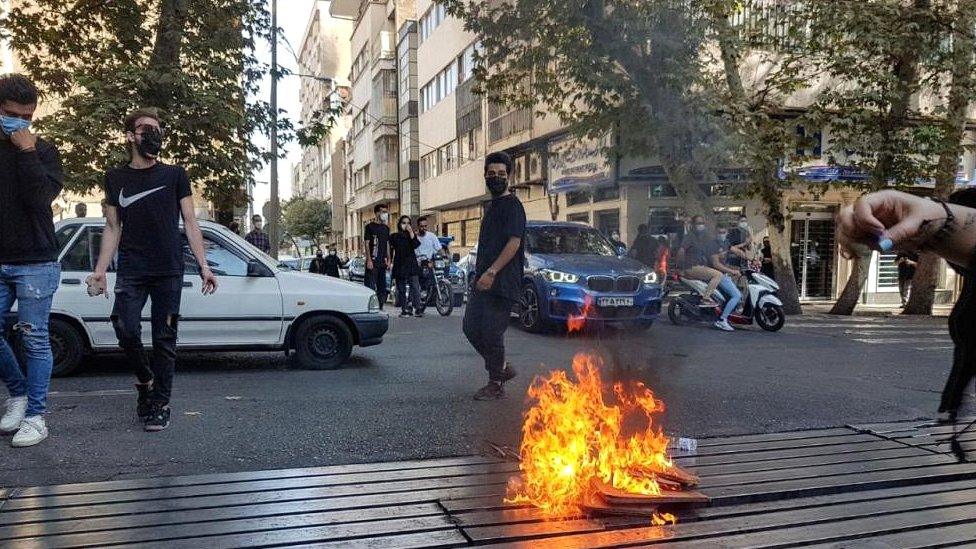
- Published7 October 2022
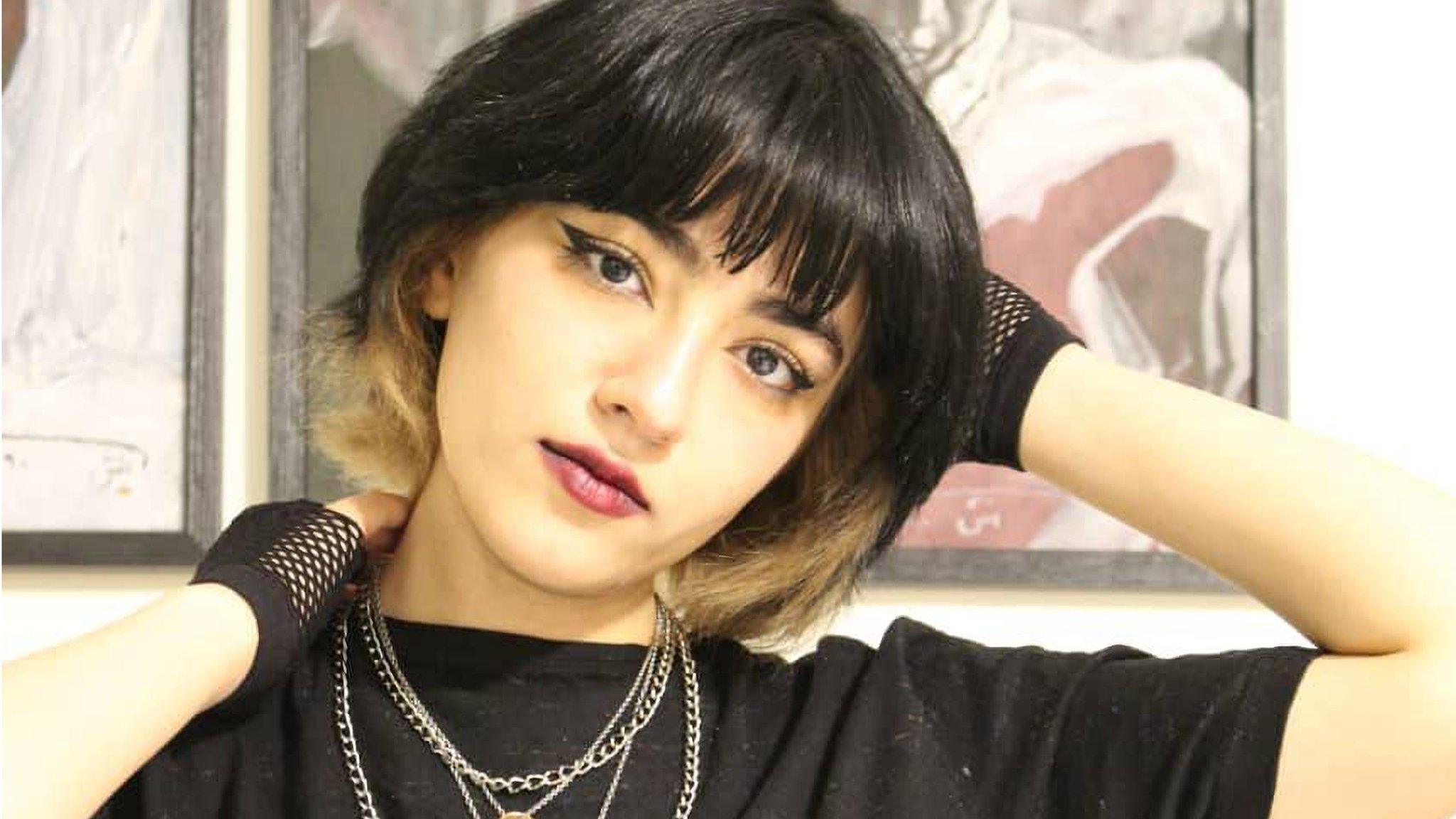
- Published1 July 2024
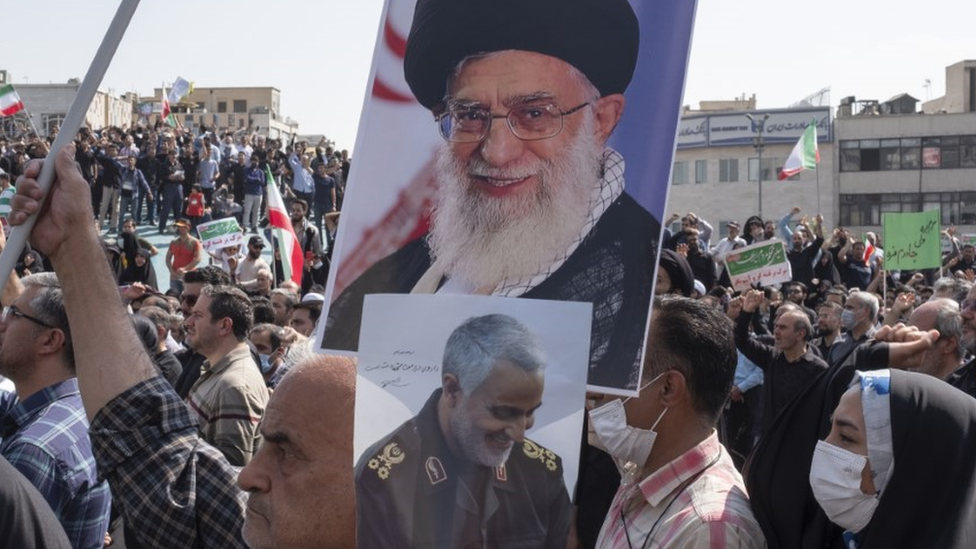
- Published3 October 2022
